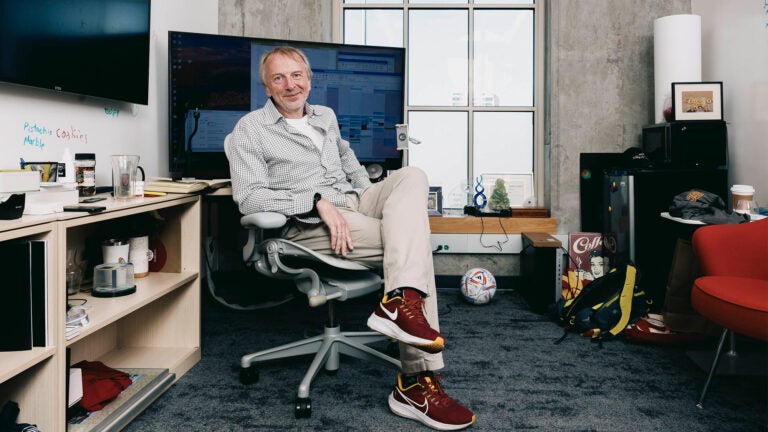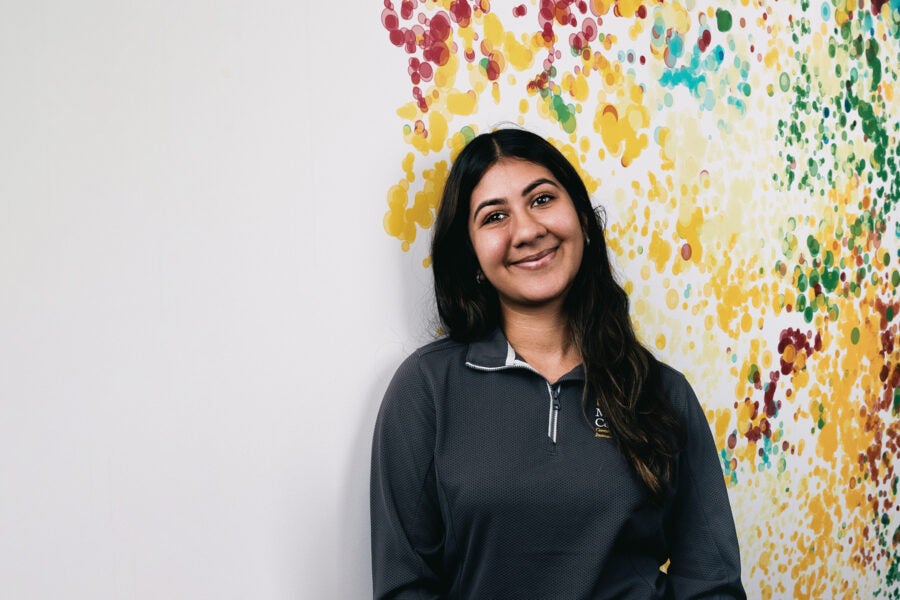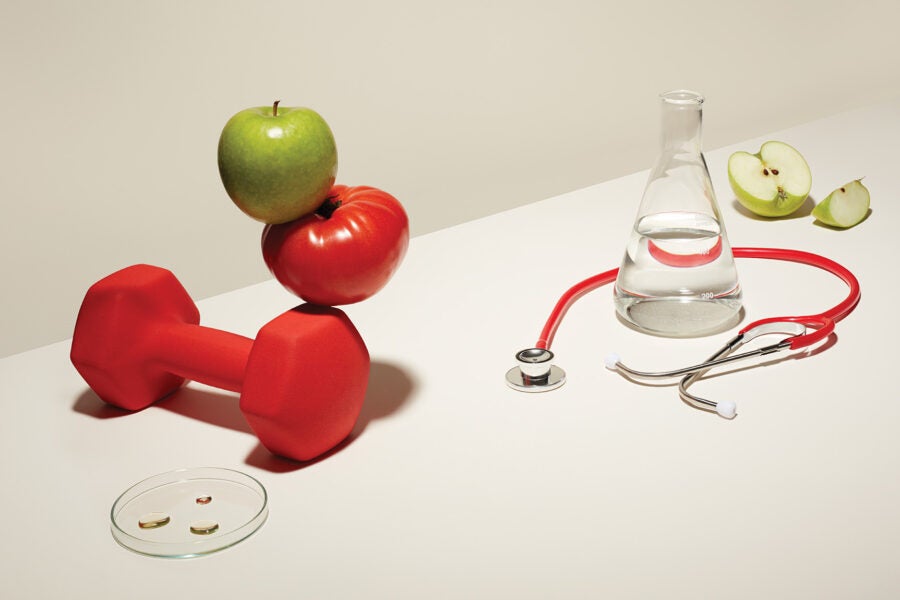
SNAPSHOT
‘Cancer detective’ wants to use liquid biopsy to change how the disease is diagnosed and treated
For cancer researcher Peter Kuhn, the battle against the disease is profoundly personal as well as scientific.
Kuhn’s mother was diagnosed with breast cancer when she was 48. Though treatment was successful, Kuhn watched her live for decades with the terrifying specter of its return. With every small ache and pain, she worried the cancer might be back — and 33 years after her first diagnosis, it recurred.
“Think how often you have an ache or pain, and multiply that out over 33 years,” says Kuhn, University Professor and Dean’s Professor of Biological Sciences at USC Dornsife.
Driven by a commitment to ease the burden for millions of people at risk of cancer, Kuhn pioneered a “liquid biopsy” to detect cancer cells in the bloodstream. The blood test, a minimally invasive alternative to tissue biopsies, has become an important tool in the management of late-stage cancers. It helps doctors customize treatment plans with precision, aligning drug therapies with the unique profile of each patient’s cancer.
Ten years ago, when Kuhn first arrived at USC Dornsife as a founding member of the USC Michelson Center for Convergent Bioscience, he doubted his test would be able to detect early-stage disease. “I thought, ‘If there’s cancer in the blood, the train has left the station’” — meaning that the disease has advanced to the point that it has hitched a ride to other locations in the body.
Fast forward to today: That prediction has been turned upside down.
“We can, in fact, find early signs of cancer in the blood,” says Kuhn, who also has joint appointments in medicine and urology at Keck School of Medicine of USC and in biomedical engineering, aerospace and mechanical engineering at USC Viterbi School of Engineering.
“Sometimes it’s not necessarily the cancer itself we’re detecting, but signs of an initial interaction between the emerging cancer and the surrounding tissue or the emerging cancer and the immune system.”
Considering that early detection can boost a patient’s chance of survival, Kuhn’s blood test has huge potential. His team at the Liquid Biopsy Clinical Laboratory, located in the USC Convergent Science Institute in Cancer (CSI-Cancer), is now investigating if his liquid biopsy can be a complement to and boost the performance of mammograms. If it can, the simple blood draw promises to make screening for new cancers and recurrences more accessible and routine.
“The blood test can be done every few months throughout life,” Kuhn says, noting that other screening tests like mammograms and CT scans aren’t typically performed with such frequency. “Developing a way to screen for cancer across the lifespan was always my ultimate goal.”
True to the convergent science model he helped establish at USC, Kuhn — recently named a senior member of the National Academy of Inventors — collaborates with experts in machine learning and artificial intelligence from USC Viterbi School of Engineering to revolutionize the field. At the intersection of technology and medicine, researchers in his lab take thousands of images of each blood sample they analyze. Teaching machines to spot the most relevant signals in the images expands the scope and pace of the analysis exponentially.
“As a scientific community, we’re creating better outcomes for everyone — those with cancer and those at risk,” Kuhn says.
The Detective’s Apprentice
Meet junior Anya Shah. Diagnosed with leukemia at age 8, the global health major and USC Dornsife natural sciences minor — who is earning her master’s in narrative medicine through the Progressive Degree Program — has been working at the Convergent Science Institute in Cancer (CSI-Cancer) based at the USC Michelson Center for Convergent Bioscience since freshman year.

